Note
You are not reading the most recent version of this documentation. See the latest version available.
[Repository Manager] Main Operational repository¶
Configure a location where all packages of this project will be stored. Also, define a folder structure template for the new package. When the Engineer creates a new package, the system will automatically create this set of folders in the specified Main Operational repository.
Important
- Go to the Main operational repository tab under the Package Settings section. To specify a location where all packages of the project will be stored click New server.
Multiple repository servers can be used in one project. The user later can select which one to use for new package. The server can’t be deleted if it contains packages.
Note
Only the Network Share server type is currently supported for the Main Operational repository. If you want to add support for any other type, Contact support
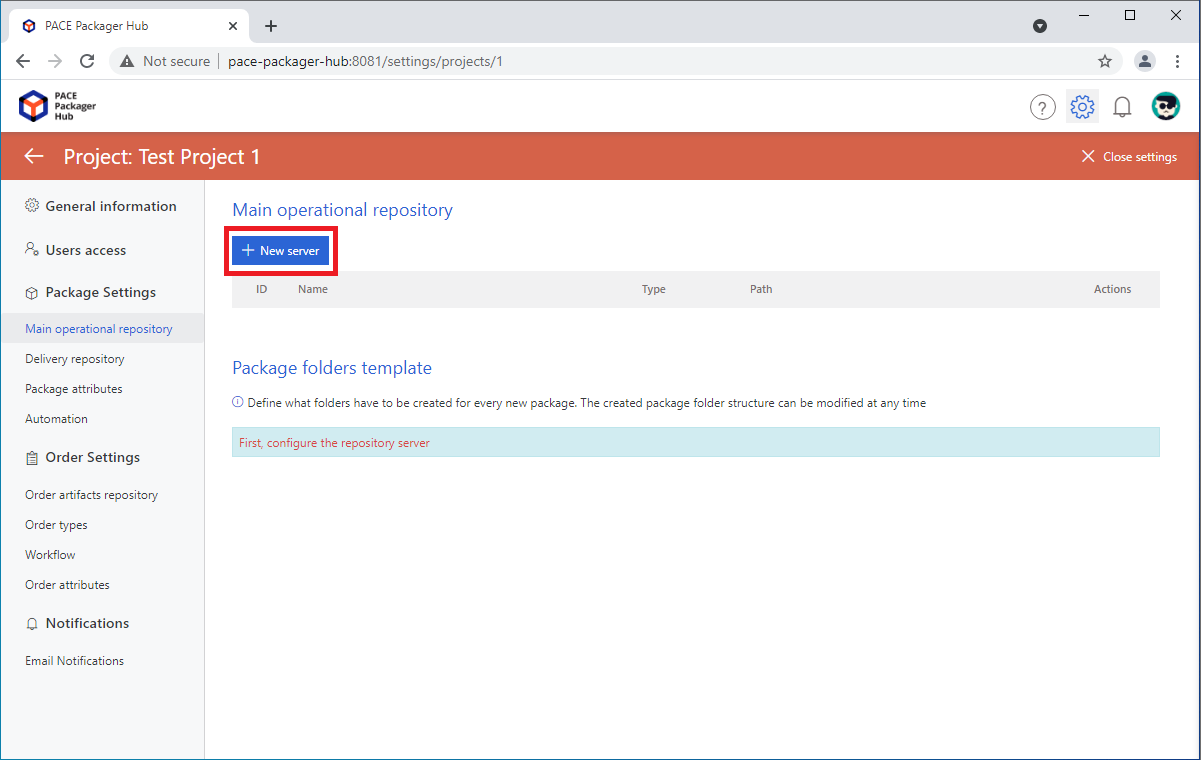
- Specify the symbolic server Name, its Network path, and the Connection credentials. See table below to choose who will use the specified credentials. Then, click Save.
Note
The specified Connection credentials are stored in the database in encrypted form.
Warning
Check that you are connected to PACE Packager Hub using HTTPS to ensure that your data and the specified Connection credentials are transmitted securely.
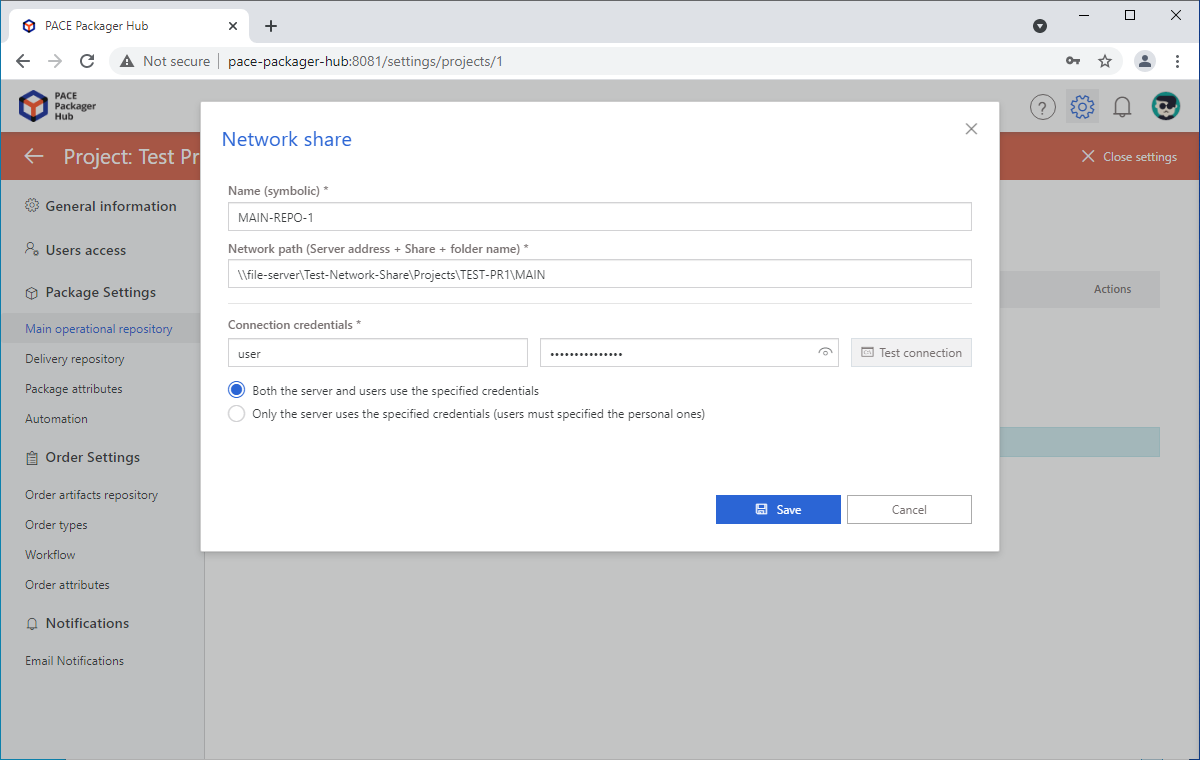
Parameter
Description
Both the server and users use the specified credentialsMeans that both (1) PACE Packager Hub server and (2) users of the desktop client will use the specified credentials to connect to this repository server.
Only the server uses the specified credentialsMeans that only PACE Packager Hub server will use the specified credentials to connect to this repository server. Users of the desktop client will be prompted to enter personal credentials. Their credentials will not be saved.
- To define what folders structure has to be created for every new package click New root folder.
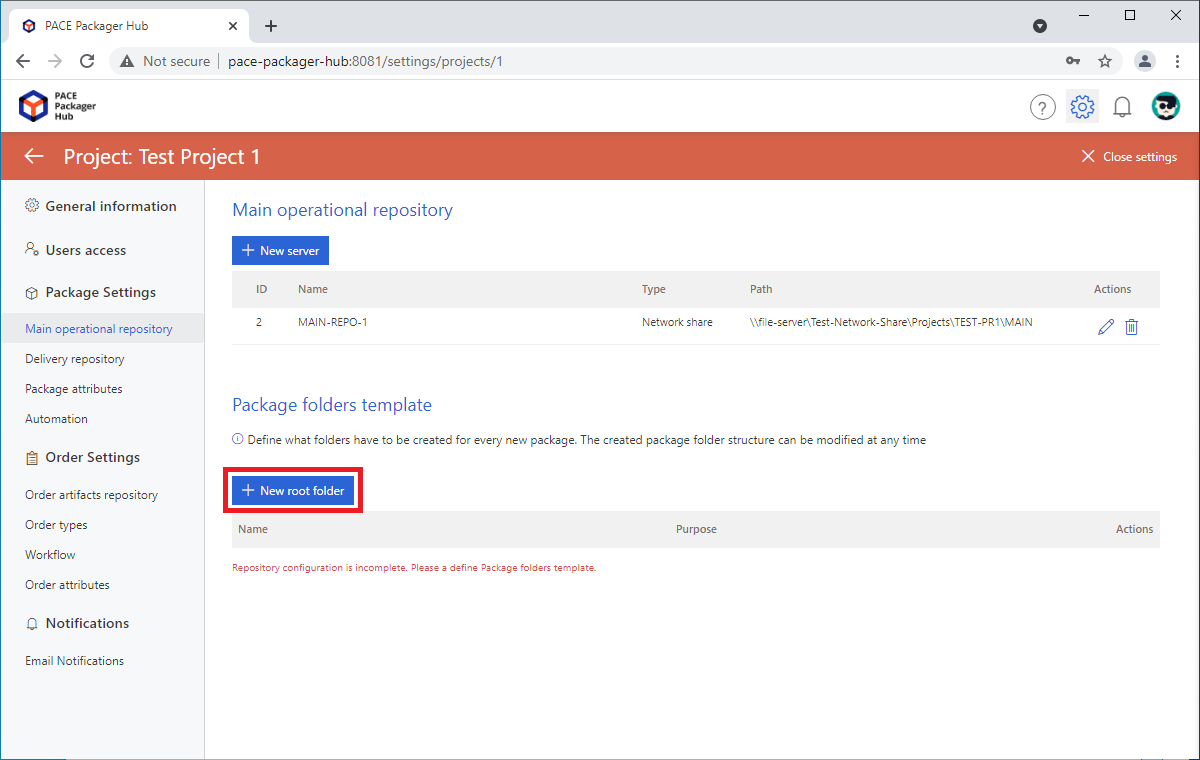
- If needed, update the default Folder name (as on screenshot) and click Save.
A folder name can be a combination of a static name and multiple variables. However, a name of the package root folder must contain at least one variable that is used to unify the name among other folders in the repository. See the table of supported variables below.
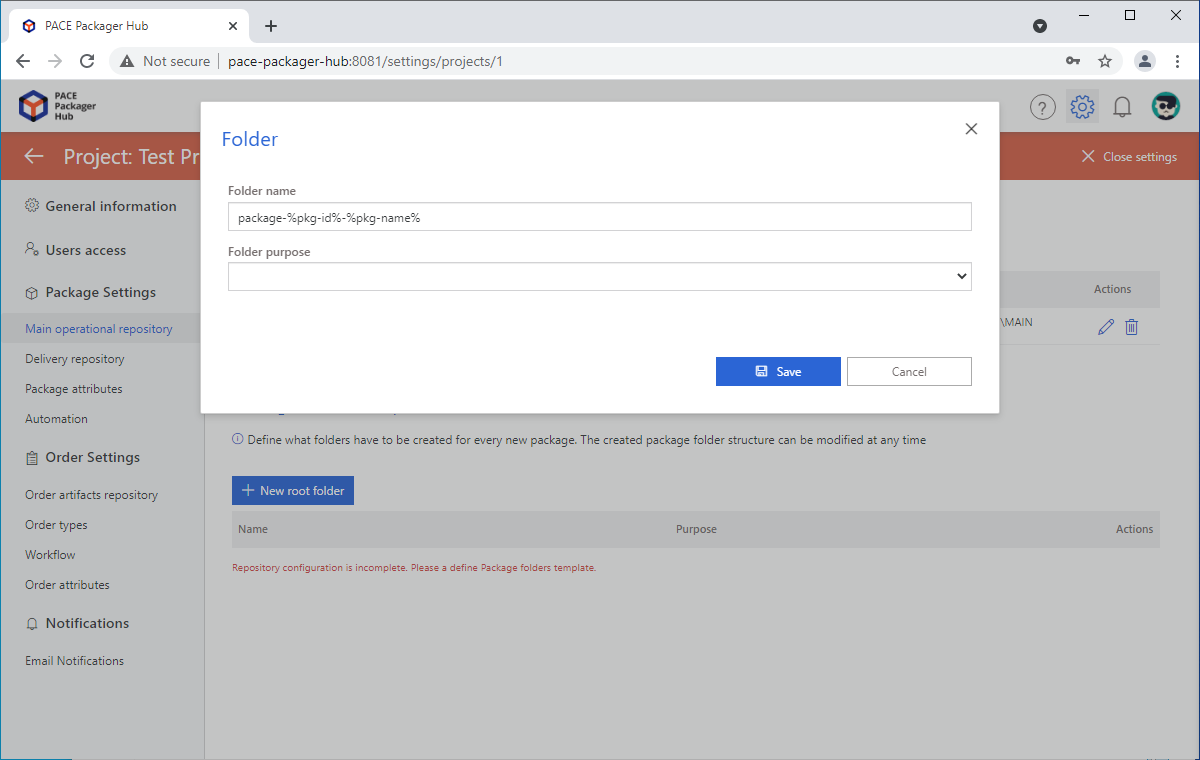
Variable
Description
%pkg-name%A value of the Package Name attribute of the Package.
%pkg-id%An ID of the Package.
%pkg-tech%A value of the Packaging technology attribute (e.g. MSI, MSIX, APPX, APPV, etc.) of the Package.
%pkg-arch%A value of the Architecture attribute (e.g. x86, x64) of the Package.
%pkg-creation-date%A value of the Creation Date attribute in format YYYYMMDD-HHMMSS.
- Then, define subfolders that should be created under the root package folder. For instance, create three subfolders: (1) for package; (2) for documentation; and (3) for incoming resources.
To add a subfolder, click Add subfolder
 .
.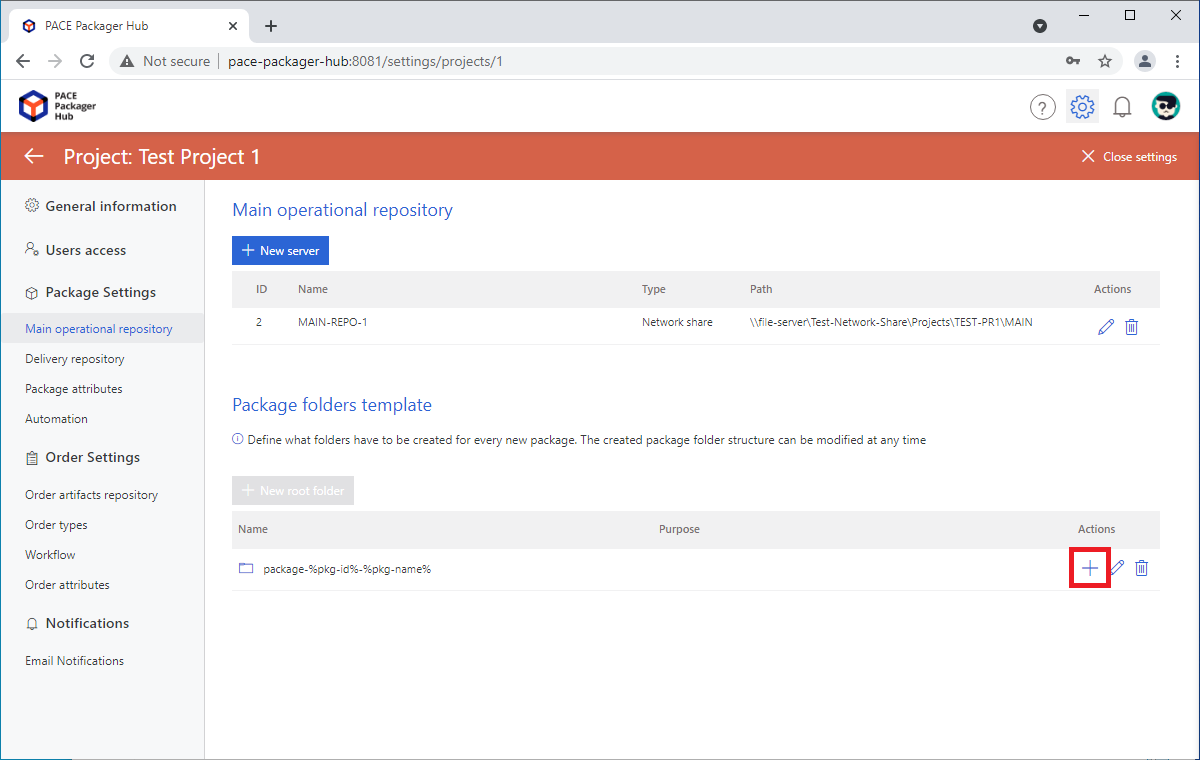
- Specify a Name of the subfolder, (optional) select its Purpose, and click Save.
The purpose flag is used by automation to get a path to these folders:
Output package folderPackage documentation folderIncoming resources folder
Note
A folder can have one or none purpose flags. One purpose flag can only be used once.
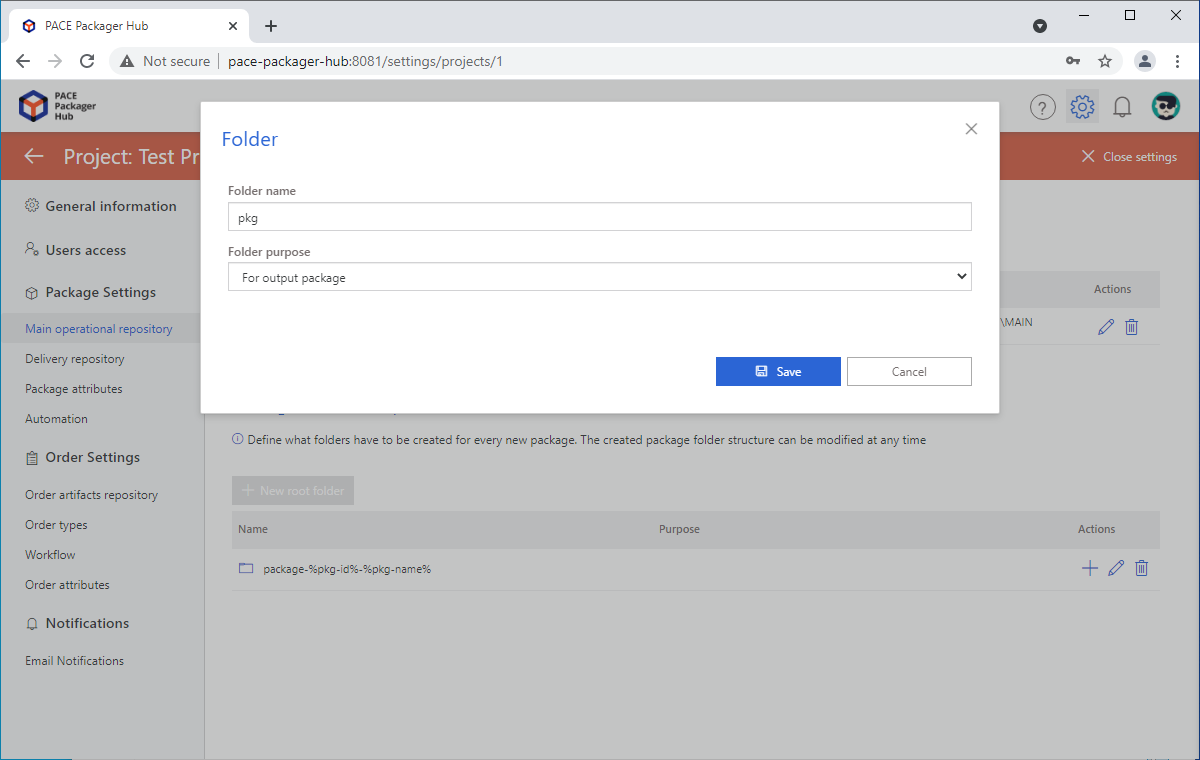
- Repeat the previous two steps to define the required folder structure that will be automatically created for each new package. As a result, you will get something like this:
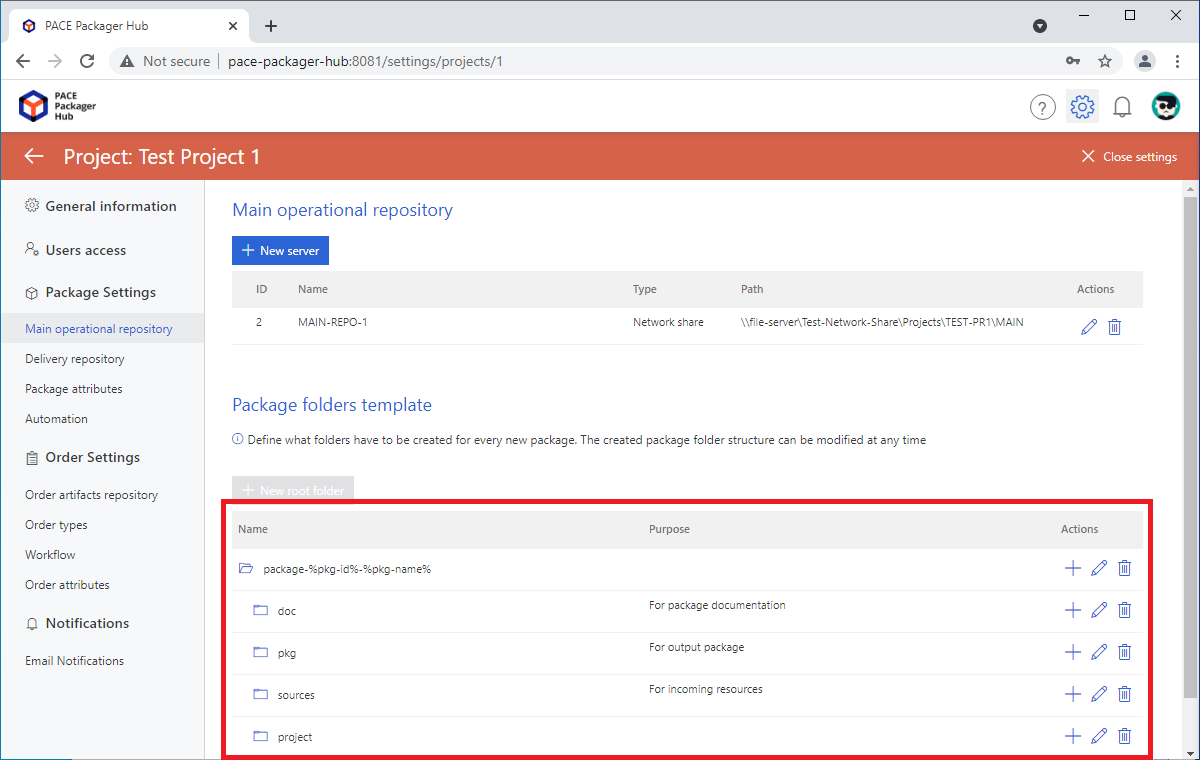
Note
PACE Packager Hub PACE Packager Hub is an end-to-end ecosystem that is fully dedicated to customer servicing, teamwork, and management of packaging tasks in teams of any size - learn more.
Try PACE Packager Hub for free - 21 days no obligations unlimited trial with all functions unlocked.
